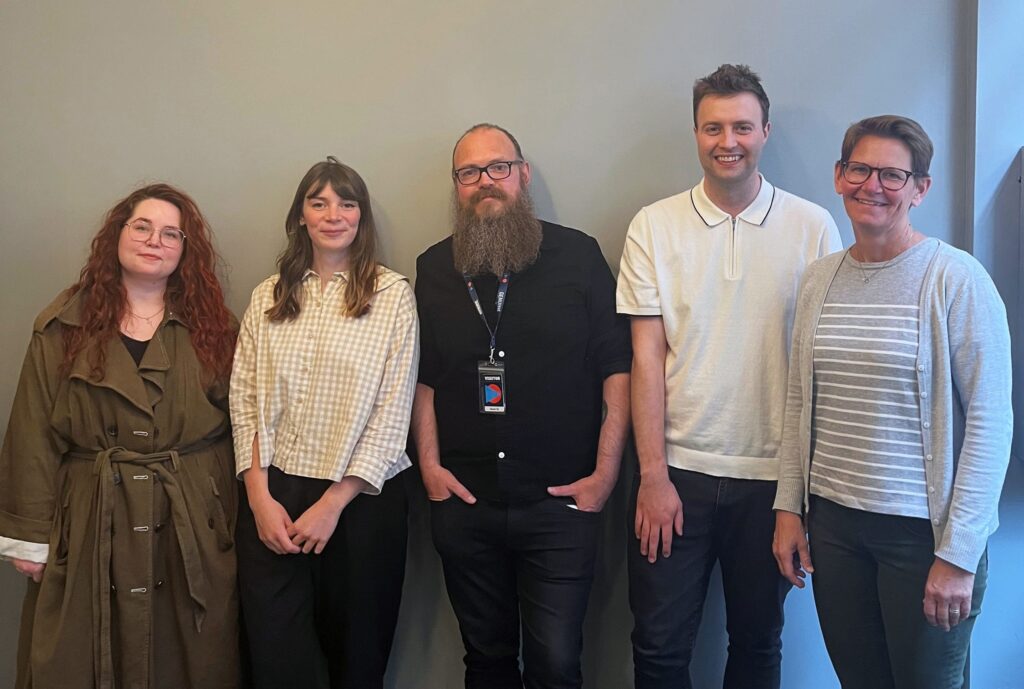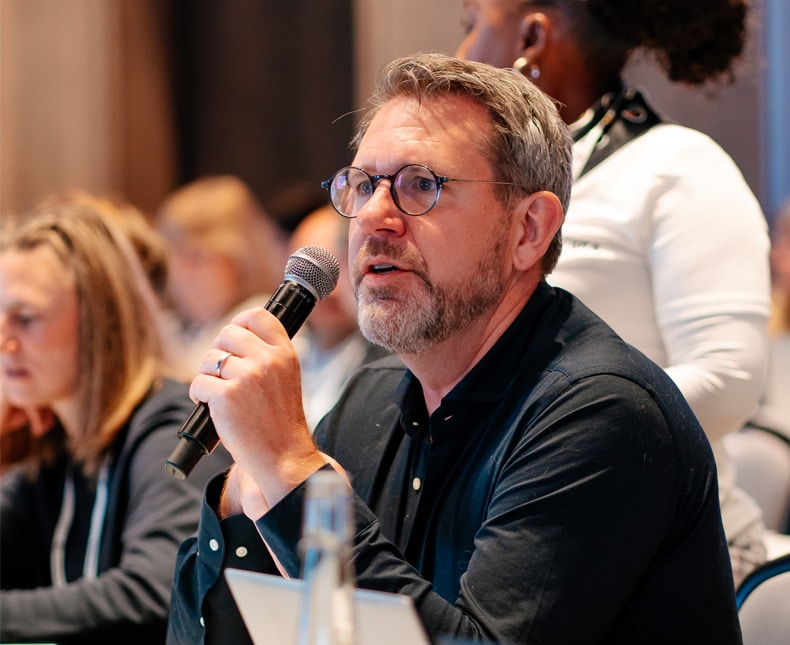How PPL’s international team is expanding global reach in 2024
As part of our ongoing mission to grow our international reach, our international team share how they’re helping PPL expand globally.

If you’ve performed on, or control the rights to, recorded music that’s been played outside of the UK, you could be entitled to collect royalties.
Making sure that money gets paid to the right people is collective effort at PPL, with our international team playing a key role. With 112 agreements in place across 51 countries, PPL is the largest international collector of neighbouring rights revenue, covering 95% of the global market.
The team, made up of 17 people, works closely with collective management organisations (CMOs) around the world. Their goal is simple: ensure accurate and efficient payments for performers and rights holders.
This year alone, the team has visited 17 CMOs and hosted nine more at the London office, all part of their ongoing mission to grow our international reach.
Here are some key moments from 2024 so far, showing how they’re helping PPL expand globally.
Improving global metadata exchange
Getting payments to performers and rights holders accurately starts with having the right data. That’s where the Virtual Repertoire Database (VRDB) comes in – a global system that keeps track of who contributed to a recording, helping ensure that royalties are paid correctly.
With nearly 15 million recordings already in the system, VRDB is transforming the way data is shared across the music industry. Our international team have been out and about helping to increase its use across our fellow CMOs.
In June, they welcomed Norway’s CMO Gramo, to our London office. Gramo, an early adopter of VRDB wanted to explore how to better use the database for more accurate payments.

The international team welcoming Gramo to our London office.
“Gramo has always been forward-thinking with VRDB, and our recent discussions in London were about fine-tuning their approach,” said Michael Whitehead, International Territories Manager. “It’s about making sure every piece of data flows seamlessly, so performers and rights holders get paid as accurately and efficiently as possible.”
Our collaborative work continued in Copenhagen, where the team’s visit to CMO Gramex focused on how they are integrating VRDB and the Repertoire Data Exchange (RDx), the system that enables record companies to exchange data with music licensing companies through a centralised hub, into their process.
“Our work with Gramex was all about collaboration,” said Chloe Rowlatt, our Head of International. “We discussed how we could better share data and work together to improve payments for their members.”
The team also travelled to Germany and Serbia to visit two other CMOs—GVL and PI. “At GVL, the focus was on data quality—ensuring payments are fair and accurate,” explained Ross Ankers, International Territories Managers. “At PI, it was about aligning their operational plans with VRDB processes. It’s all about getting the details right, and by refining VRDB processes, we’re paving the way for more transparent and efficient payments across borders.”
Building licensing expertise around the world
At 90 years old, we’ve learnt a thing or two about building an effective licensing operation, and where we can share that knowledge with other organisations to help develop and improve how the global recorded music rights market works, we do.

Our international team welcoming CAVCA to our London office earlier this year.
In the spring, the international team hosted the China Audio-Video Copyright Association (CAVCA) in London. China only introduced sound recording performance rights in June 2021, and CAVCA has been working to learn how to effectively collect and enforce these rights. During the visit our team shared best practices and operational insights, to help support the CAVCA team to grow their collections in this market with huge potential for growth.
May saw us participating in the 49th SCAPR General Assembly in Johannesburg, the first SCAPR gathering held in Africa. SCAPR represents performer CMOs from around the world, and the assembly provided valuable insights into the unique challenges and opportunities within the African music industry.
“The discussions emphasised the importance of strengthening relationships and building on existing initiatives to improve performers’ rights globally,” reflected Chloe.
This year’s SCAPR Assembly also saw the election of new board members, Kyoko Kojima from CPRA (Japan) and Pfanani Lishivha from SAMPRA (South Africa). It’s the first time Africa has been represented on the board, enabling an even more inclusive approach to advancing performers’ rights worldwide.

Laurence Oxenbury, PPL’s Director of International, at the 49th SCAPR General Assembly.
Meanwhile, at PPL’s own 90th anniversary AGM in June, our Director of International, Laurence Oxenbury, hosted a panel on CMO collaboration, featuring Anne Sophie G. Schrøder from Gramex (Denmark), Joe Fitzpatrick from PPI (Ireland), and Lauri Rechardt from IFPI, the International Federation of the Phonographic Industry.
The panellists shared their expertise on how sound recording CMOs collaborate to grow revenues and improve efficiency, examining the opportunities and some of the barriers to be tackled.
Strengthening relationships with partners
One of our key priorities at PPL is building and maintaining strong relationships with CMOs around the world. This is essential for maximising payments for performers and recording rightsholders worldwide.
The international team’s visit to SENA in the Netherlands this summer focused on just this, getting to know some new people in their team and discussing more opportunities for collaboration.
Similarly, their visit to PlayRight in Belgium aimed to explore mechanisms to further increase revenue in 2024. “Maintaining a collaborative approach and open dialogue is key to our success,” said Ross, “the more we know and understand the team and how the CMO works, the more effective we can be more for our members.”
The team also travelled to Brazil to meet with four different CMOs, including ABRAMUS. Much of the visit was spent understanding Brazil’s ongoing system updates and data flows to uncover opportunities for improvement. They also met with ECAD, Brazil’s central CMO responsible for licensing collections and the national database of recordings.

Our international team members Michael Whitehead and Rochelle Grant meeting with IFPI.
Another key visit took place in Sweden, where the team met with the Swedish Artists’ and Musicians’ Interest Organisation (SAMI) and IFPI Sweden to discuss ways to improve payments and services for members. They were interested to learn how SAMI supports its community, including their work to help restore Stockholm’s historic Nalen building, famous for its jazz music and ballroom dances.
As PPL continues to expand its global footprint, the international team remains committed to working with CMOs around the world to strengthen relationships, improve licensing expertise and refine data processes. Their efforts help ensure fair and efficient payments for performers and rights holders worldwide.
For more information, read the full report on PPL’s international revenue in our Annual Review.


